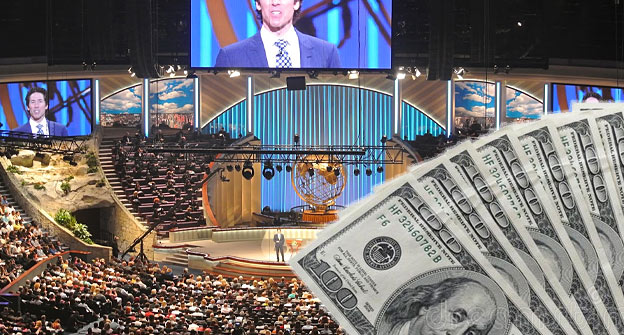Blues Man
Diamond Member
- Aug 28, 2016
- 35,513
- 14,915
- 1,530
That's the Bill of Rights which predates the USSRNonsense! That's the gibberish of the statist, former Soviet Union's doctrine of separation.
Follow along with the video below to see how to install our site as a web app on your home screen.
Note: This feature may not be available in some browsers.
That's the Bill of Rights which predates the USSRNonsense! That's the gibberish of the statist, former Soviet Union's doctrine of separation.
The existing church of any religion is a religious establishment.
Passing a law to give taxpayer dollars to any religious establishment is a violation of the first amendment.
So you see I did answer your question you just weren't smart enough to realize it.
IS that a law? Do all members of Congress have to join in the prayer?You do not understand the word. It does not mean in context here what you seem to think it means.
No you did not. Why did the Founders agree to start off Congress every day with a prayer. (something that continues to this day)
IS that a law? Do all members of Congress have to join in the prayer?
People can pray anywhere without there being a law passed.
So it's not a law. Therefore it is not a violation of the first.No, all do not AND any belief may start the day with the prayer. It's common the have leaders from many beliefs start the day.
I don't mean this just towards you but people rant and rave and they are not even curious about the history behind things they rant and rave about.
Establish in context to the 1st means that the government can not establish a state religion. Something quite common back 250 years ago.
Of course they can but we are discussing prayer involving the government.
So it's not a law. Therefore it is not a violation of the first.
Funding religious schools would require a law to give taxpayer dollars to a religious establishment.
The only law is one that creates funds that go to private schools. Once that is done the government can not discriminate.
Religion gets so many tax breaks already that they do not need more taxpayer moneyThe money quote from the OP article right here:
This is perhaps bigotry. The rabid secularists really do seem to believe religious people have cooties. You can see the bigotry most clearly when folks on the Left falsely assume that Christian conservatives hate Jews and Muslims as much as the anti-Christian Left hates us.
Yep. They project on us how much they hate Christians. Fascinating. Sad, but fascinating.

 www.mightytaxes.com
www.mightytaxes.com
What I'm saying is that you're asserting the doctrine of separation espoused by the communists of the former Soviet Union.That's the Bill of Rights which predates the USSR
It doesn't matter if the religious establishment is a school or not because the First Amendment does not specify.

U.S. Churches Enjoy $71 Billion in Tax Breaks
Research finds that every year U.S. churches and religious groups enjoy billions of dollars in tax breaksand subsidies.www.mightytaxes.com
I voted for Trump, but must admit that I doubted he would keep those promises about the Supreme Court.
I am amazed, and appreciative.
Oh, by the way, Blues Man, the bastardized notion of separation imposed by Justice Black as representing the majority in Everson v. The Board of Education was not part of the ratio decidendi, i.e., the operatively binding reason for the decision. That part of the decision was sound.Religion gets so many tax breaks already that they do not need more taxpayer money
No I am using the first amendment.What I'm saying is that you're asserting the doctrine of separation espoused by the communists of the former Soviet Union.
Look, the constitutional doctrine of separation is the very same as that of the Anglo-American tradition of natural law sans Locke's bias against persons of nonbiblical faiths and atheists.
Excerpt for an article I wrote on the matter:
Finally, Locke championed religious tolerance. He’s the progenitor of the original principle of separation between religion and state, or, in his words, between “the Church and the Magistrate” for the times of the Gentiles. He wrote an influential series of letters on religious tolerance in the years of 1689, ’90, and ’92 in which he bottomed his apologia on Christ’s edict: “Render to Caesar the things that are Caesar’s, and to God the things that are God’s” (Mark 12:17, KJV). That daisy utterly flummoxed the Pharisees, who had no idea they were trying to outsmart God Himself. I know readers of the Bible are familiar with the gist of that encounter, but I always get a chuckle out of that zinger and enjoy recounting its effect.But, of course, Locke’s principle of separation is not what the Supreme Court imposed on the Establishment Clause of the First Amendment in Everson v. The Board of Education (1947). Locke simply argued that the government had no business invading the private sphere of religious affiliation and moral decision.That’s God’s sphere!The above is strictly a matter between God and the people. Expressly, the government must be prohibited from establishing an official state church or national religion. That’s all. It’s not rocket science. Ironically, the Court did just the opposite of what it claimed. In effect, it established the public education system as the government’s “church” and anointed humanism as the system’s “religious doctrine.” That's precisely what the Court did; make no mistake about it. The Court’s imbecilic version of the principle of separation is essentially that of the former Soviet Union, the constitution of which states in Article 13:In order to ensure genuine freedom of conscience for the working people, the church is separated from the State, and the school from the church: and freedom of religious and anti-religious propaganda is recognized for all citizens.The emboldened emphasis in the above is mine. Note that the government school was separated from the church, and private schools weren’t permitted in the Soviet Union. The “religious doctrine” of the state school was the dialectical materialism of Marxist atheism, so the guarantee regarding the “freedom of religious and anti-religious propaganda” (i.e., the freedom of religion in realspeak, as opposed to the Orwellian doublespeak of the Soviet Constitution) was a flat-out lie.But Locke made an exception to his rule. He supported a religious test for office.Say it isn’t so, Johnny!Though he opposed the government interfering with the private affairs of their religious/moral convictions and practices, he held that persons of nonbiblical faiths and atheists should be barred from holding public office. He observed that all other religious faiths were authoritatively collectivistic and that atheists had no ontological justification for the limited government of liberty. Also, given that God’s existence was self-evident, Locke regarded atheists as mentally deranged—rank reprobates. He rightly held that the above persons weren’t ideologically fit to uphold the liberty of a republican form of government. The only exception to that rule would be the Deists and classical pagans of republicanism. Their understanding of natural law was fundamentally akin to or precisely that of Christianity. Persons of nonbiblical faiths and atheists do indeed tend to be leftists, progressives, collectivists, socialists, fascists, communists, statists. . . .
Churches way more tax breaks than other "charities" or "non-profits"That's a misnomer also. We do NOT tax income in any other venture. We tax profits. The argument is to single out church's to tax the money they take in. How many places would survive that? Are you really going to advocate taxing what is taken in as opposed to what is profits?
No I am using the first amendment.
The language isn't difficult to understand. As long as government stays out of religion then religious establishments can pretty much do whatever they want.
Churches way more tax breaks than other "charities" or "non-profits"
Irrelevant.Why did the Founders agree to start Congress off with a prayer if they were so intent on keeping the government and religion seperate?